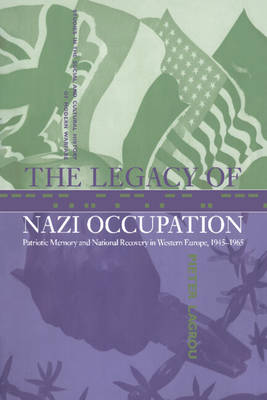
Bedankt voor het vertrouwen het afgelopen jaar! Om jou te bedanken bieden we GRATIS verzending (in België) aan op alles gedurende de hele maand januari.
- Afhalen na 1 uur in een winkel met voorraad
- In januari gratis thuislevering in België
- Ruim aanbod met 7 miljoen producten
Bedankt voor het vertrouwen het afgelopen jaar! Om jou te bedanken bieden we GRATIS verzending (in België) aan op alles gedurende de hele maand januari.
- Afhalen na 1 uur in een winkel met voorraad
- In januari gratis thuislevering in België
- Ruim aanbod met 7 miljoen producten
Zoeken
The Legacy of Nazi Occupation
Patriotic Memory and National Recovery in Western Europe, 1945 1965
Pieter Lagrou
€ 213,45
+ 426 punten
Uitvoering
Omschrijving
This book offers a comparative analysis of how postwar society dealt with the disruptive legacy of Nazi occupation in France, Belgium, and the Netherlands. It examines the postwar trajectories of resistance fighters, labor conscripts employed in Nazi Germany and victims of Nazi persecution and genocide. Their experiences were often incompatible with the patriotic narratives, aimed at restoring national pride and with the international context, requiring reconciliation with West Germany. In the conflict between memories of the war and the contingencies of the postwar political agenda lies a key to understanding European history since 1945.
Specificaties
Betrokkenen
- Auteur(s):
- Uitgeverij:
Inhoud
- Aantal bladzijden:
- 344
- Taal:
- Engels
- Reeks:
- Reeksnummer:
- nr. 8
Eigenschappen
- Productcode (EAN):
- 9780521651806
- Verschijningsdatum:
- 13/02/1999
- Uitvoering:
- Hardcover
- Formaat:
- Genaaid
- Afmetingen:
- 158 mm x 236 mm
- Gewicht:
- 603 g

Alleen bij Standaard Boekhandel
+ 426 punten op je klantenkaart van Standaard Boekhandel
Beoordelingen
We publiceren alleen reviews die voldoen aan de voorwaarden voor reviews. Bekijk onze voorwaarden voor reviews.









